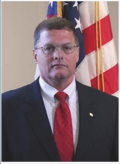Life can be really funny. I was sitting at my desk and pondering my retirement date. Retirement from my defense intelligence job at the U.S. Army’s Fort Leavenworth garrison loomed in front of me like a vast desert with few oases to save me from terminal boredom. As I scanned my email I saw a note from the Army Civilian Senior Leader Management Office (CLSMO) that offered an opportunity to attend an executive coaching program. Could this be what I was looking for?
The program, Leadership Coaching for Organizational Well-Being, was at George Mason University and set to begin in September 2016. I thought participating could be fun and not very difficult. After all, I had more than 40 years of experience in managing people and large organizations. I saw the potential to give back to the Army and the people who had made me successful and taught me so much about how to live.
It turned out that I was right and I was wrong. It was fun but more difficult (in a deeply personal sense) than I imagined. Coaching done right requires deep focus and commitment to the client.
Leadership is a polarity. In Army terms, it is the balance between people and mission. Leaders in the Army will say, “Mission first, but people always.” However, just saying it does not make it so. The connection between tasks and relationships is the eternal balance that leaders must work to maintain. Healthy organizations inherently have that balance where people can sense an aura of organizational and personal well-being. Done well, it is a workplace where people say, “I always go the extra mile in my job because I love what I do, not because anyone asks me to do so.”
My great hope was that the education in this coaching program would make me the kind of leader I had always wanted to be. I wanted to truly understand how to create a balance of mission and people that would spawn a healthy organization – one that promoted personal as well as organizational growth.
I am a very practical person, and my long Army career has been built on fact-based decisions and accountability. When I began the coaching program at Mason, I was very skeptical and perhaps even resistant since so much was new to me there. However, the program exceeded my expectations in every way! I have never been in such a judgment-free and caring environment in my life. My classmates and the faculty were extraordinary. Parts of me I did not know existed were brought to life in the nurturing environment. Yes, it sounds kind of sappy, but what can I say about an experience that has made an indelible mark on my soul?
So how has it helped me, practically? I am much less reactive and much more contemplative. That plays out as listening better to my peers, subordinates and superiors. I feel as if I no longer have “ego” invested and can be a better teammate to everyone. I am also now very conscious of the narratives that run in my head as I climb up and down the Ladder of Inference (a concept developed by organizational psychologist Chris Argyris) many times a day. Now I understand how people can select facts from many possibilities and run those facts through a narrative about someone or something to assign meaning and draw conclusions. That’s a powerful tool to see the world as it really is – not just as we think it is.
Finally, I have learned the power of speech. The most profound thing that was said in class was that speech is generative. It creates futures that did not exist until that speech occurred. This statement gave me a sense of creativity that I had never had before. Speech can build new futures. Wow!
My time at Mason actually attending the course was only 15 total days. Those days may have been some of the most consequential of my life (and I have been around quite a while.) That is because of Mason’s staff and faculty who unreservedly shared themselves, and my classmates who were always there for me.
This course should have a warning label that reads, “Do not attend if you do not want to change the way you live your life.”
Apply to join the next cohort here

